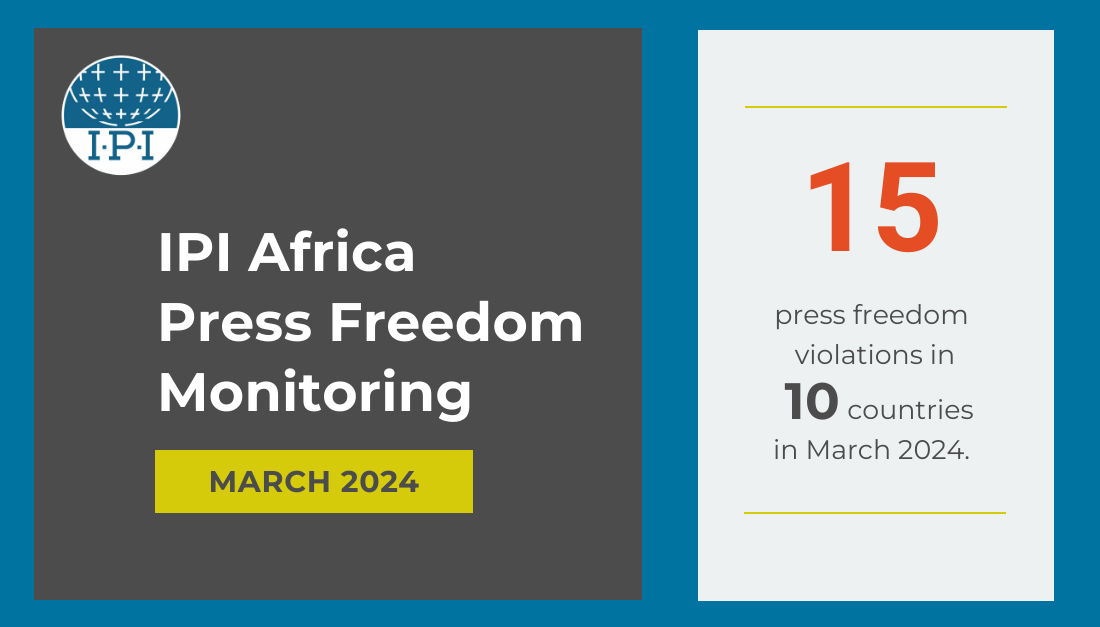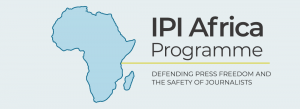In March 2024, IPI documented 15 threats to press freedom in 10 countries in sub-Saharan Africa. The most common types of attacks were physical attacks – including the killing of a journalist in Chad – and censorship. Nigeria saw the highest number of recorded threats to press freedom.
DOWNLOAD THE FACTSHEET HERE (PDF FILE)
In Chad, journalist Idriss Yaya and his family were murdered in their home on March 1. The murder is believed to be linked to Yaya’s coverage of intercommunity clashes in the region. Yaya, who worked for Radio Communautaire de Mongo, had previously received threats. The local journalists union UJT condemned the killing and has called for justice. Police have arrested nine suspects but have yet to prosecute them.
In Nigeria, on March 15, military men arrested and detained journalist Segun Olatunji of The First News. Authorities released him on March 28 after widespread condemnation by local and international press freedom groups, including IPI. His detention followed the publication of a story that implicated top figures in Nigeria’s defence intelligence agency in nepotism and corruption.
Additionally, in Côte d’Ivoire, on March 5, an officer in the police’s cybercrime unit verbally attacked and harassed investigative journalist Noel Konan. The incident occurred when Konan contacted the officer to cross-check information for a story about corruption and forgery linked to the issuance of Ivorian passports to certain business people.
Elsewhere, in Togo, authorities arrested journalist Apollinaire Mewenemesse and charged him with fake news and incitement, among other charges. The arrest came after Mewenemesse’s newspaper, La Dépêche, published an article questioning the conviction of a general in the murder of an ally of President Faure Gnassingbe. Togo’s media regulatory body had previously suspended La Dépêche for three months over the article.
Positive developments in Senegal
There were also some positive developments this March. Senegal’s departing president, Macky Sall, approved a law absolving media outlets of their tax debts. Those debts amount to an estimated 60 million euros.
Meanwhile, there were widespread concerns for press freedom around Senegal’s general election on March 24. However, authorities did not restrict internet access, as feared, and the vote passed without major press freedom violations or attacks on journalists.

